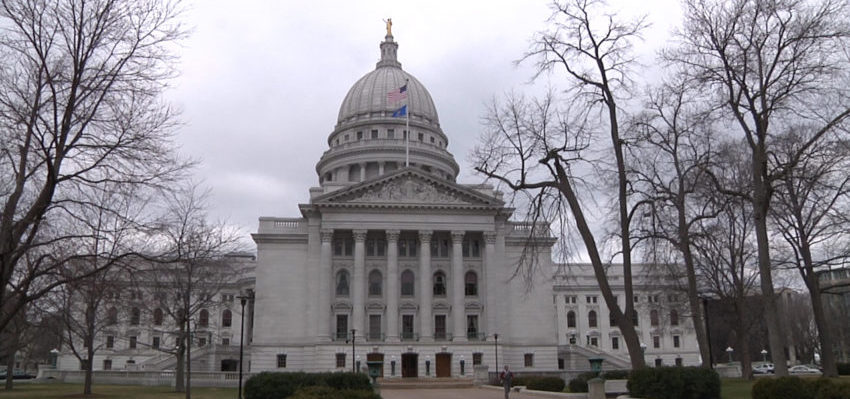
January 12, 2018 | MacIver News Service
With Christmas break in the rearview mirror, state legislators came roaring back to Madison this week, bringing a short-lived winter heatwave with them. Democrats fighting against teacher protections, gold medals, the GAB basement chamber of secrets, and liberals finally embracing federalism: it’s all below in this week’s Friday Capitol Update.
Medical “Memberships” Await Deregulation
On Thursday, three Direct Primary Care (DPC) physicians testified in favor of the Republican-authored Senate Bill 670 in front of the Senate Committee on Public Benefits, Licensing, and State-Federal Relations.
Under DPC agreements, patients pay a monthly fee to their doctors for unlimited primary care services.
Three #DirectPrimaryCare doctors are testifying in favor of SB 670, creating DPC trial program in WI Medicaid program. pic.twitter.com/jraHtBPBuB
— MacIver Institute (@MacIverWisc) January 11, 2018
This legislation, if passed, would allow patients to participate in DPC programs without insurance regulations, cutting out the middleman. It would also create a trial program for DPC in Wisconsin’s Medicaid program. The bill would cut back both paperwork for doctors and costs for patients, potentially ushering in a new era of medicine.
.@SenatorKapenga speaking about his #DirectPrimaryCare bill, authorizing DHS to launch DPC pilot program in medical assistance program. #wiright #wipolitics pic.twitter.com/IahhUBdbHa
— MacIver Institute (@MacIverWisc) January 11, 2018
A Tale as Old as Time for the Wisconsin Ethics and Elections Commissions:
Despite replacing the Government Accountability Board (GAB) in 2016 with the Ethics and Elections Commissions, politically motivated attacks on conservatives continue.
Recent reports of misconduct in the John Doe II and III cases led to the GOP-controlled Senate calling for the removal of Ethics Administrator Brian Bell and Elections Administrator Michael Haas. Now there are concerns that Patrick Fiedler, the attorney tapped to look into the Bell matter, is employing the same kind of tactics used in the John Doe investigation – playing the role of the heavy to “intimidate” and impede Republican senators in their legislative duties.
You can read another in a long line of Ethics Commission misconduct allegation reports from MacIver’s Matt Kittle here.
From bad to worse, Thursday’s Ethics Commission meeting revealed the records left in the GAB basement were in such a disheveled state that it posed a safety risk to the new Ethics Commission employees. Apparently, the GAB was too concerned with probing political opponents to clean up their messy basement.
Teacher Protection Act:
On Thursday, an Assembly committee heard public input on Assembly Bill 693, also known as the Teacher Protection Act. If passed, the bill would provide educators with more information about violent students in their class, allow contract voidance in cases of assault, and allow teachers to remove violent students from their classroom for two days without suspending them. The bill’s author, Rep. Jeremy Thiesfeldt (R-Fond du Lac), pointed toward data showing more than ten percent of teachers have been assaulted in their classrooms in the past year.
Democrats on the Assembly Committee on the Judiciary voiced concerns that the policy would particularly target disabled and minority students while bogging down the system with frivolous interactions between police and students, like jaywalking citations.
Talk show host Dan O’Donnell of WISN in Milwaukee produced an investigative report, “Blood on the Blackboard,” in 2016 about violence against teachers. He testified before the committee, sharing accounts of assaults by students on faculty. After his testimony, he sat down with the MacIver Institute to discuss his thoughts.
Wisconsin Moves To End Violence Against Teachers In The Classroom: https://t.co/ThbIXsH6SK via @YouTube
— MacIver News Service (@NewsMacIver) January 12, 2018
An executive session is expected to be held soon on the bill. You can read MacIver’s Abby Streu’s full story here.
Senate Committee Hearing for Consistent Labor Regulations
Since the passage of Right-to-Work in 2015, Wisconsin Democrats and union bosses have been screaming “Home Rule!” pushing for local governments to bypass state law and determine labor regulations for their area of jurisdiction.
On Wednesday, the Senate’s Committee on Labor and Regulatory Reform heard testimonies for Senate Bill 634, which aims to standardize labor laws throughout the state. SB 634 would prevent local governments from forcing workers into certain collective bargaining requirements, such as the determination of overtime, benefits, and wages.
Critics claim the Republican authors of the bill are overreaching on the rights of local government. Conversely, local governments unrolling wads of union-made red tape into their constituents’ lives is perhaps the true overreach.
Above all, the legislation is about uniformity, consistency, and predictability, its authors say. It would be a huge victory for red tape-cutting warriors. #wiright #wipolitics https://t.co/U4lsJ2U0ZJ via @MacIverWisc
— MacIver Institute (@MacIverWisc) January 11, 2018
MacIver’s Matt Kittle elaborates on the hearing here.